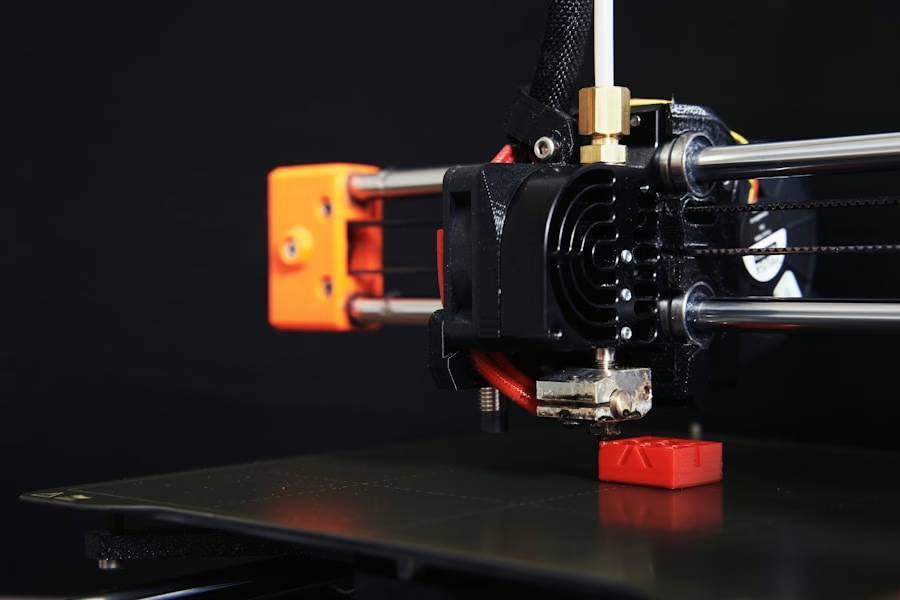Innovation serves as the lifeblood of progress, driving industries to evolve and adapt in an ever-changing landscape. At its core, innovation encompasses the introduction of novel ideas, processes, or products that significantly enhance efficiency, productivity, or user experience. This transformative power is evident across various sectors, from healthcare to technology, where groundbreaking concepts are not merely improving existing frameworks but are redefining them entirely.
For instance, the advent of telemedicine has revolutionized patient care by enabling remote consultations, thereby increasing accessibility and convenience for patients who may have previously faced barriers to receiving medical attention. Moreover, innovation is not limited to technological advancements; it also includes new business models and strategies that challenge the status quo. The rise of subscription services in industries such as entertainment and retail exemplifies this shift.
Companies like Netflix and Spotify have transformed how consumers access content, moving away from traditional ownership models to a more flexible, on-demand approach. This shift not only enhances customer satisfaction but also allows businesses to create more predictable revenue streams, demonstrating how innovative thinking can lead to substantial changes in industry dynamics.
Disruptive Technologies: How Cutting-Edge Innovations are Shaking Up Traditional Industries
The Rise of Artificial Intelligence and Machine Learning
A prime example of disruptive technology is the rise of artificial intelligence (AI) and machine learning, which are transforming industries such as finance, manufacturing, and customer service.
Transforming Industries
In finance, AI algorithms can analyze vast amounts of data to identify trends and make predictions with remarkable accuracy, enabling firms to optimize trading strategies and risk management processes. In manufacturing, the integration of AI with robotics has led to the emergence of smart factories that utilize real-time data analytics to enhance production efficiency. Companies like Siemens and General Electric are leveraging these technologies to streamline operations and reduce costs.
Fostering a Culture of Innovation
As a result, traditional manufacturing processes are being redefined, leading to increased competitiveness and sustainability. The impact of these disruptive technologies extends beyond mere efficiency gains; they also foster a culture of continuous improvement and innovation within organizations, encouraging them to rethink their approaches to product development and service delivery.
The Rise of Startups: How New Ideas are Revolutionizing Established Industries
The startup ecosystem has become a hotbed for innovation, with new companies emerging to challenge established players across various sectors. These startups often operate with agility and a willingness to take risks that larger corporations may shy away from. For instance, in the transportation industry, companies like Uber and Lyft have disrupted traditional taxi services by offering app-based ride-hailing solutions that prioritize convenience and user experience.
This shift has not only transformed urban mobility but has also prompted regulatory changes and forced traditional taxi companies to adapt or risk obsolescence. Furthermore, startups are increasingly focusing on sustainability and social impact, addressing consumer demand for ethical business practices. Companies like Beyond Meat and Impossible Foods are revolutionizing the food industry by providing plant-based alternatives to meat products, appealing to environmentally conscious consumers while challenging the dominance of traditional meat producers. This trend highlights how innovative ideas can not only disrupt existing markets but also pave the way for more sustainable practices that align with evolving consumer values.
Innovation in Action: Examples of Cutting-Edge Ideas Making Waves in Various Industries
Numerous examples illustrate how cutting-edge ideas are making significant impacts across different industries. In healthcare, wearable technology such as smartwatches and fitness trackers has empowered individuals to monitor their health metrics in real time. Companies like Fitbit and Apple have integrated health monitoring features that allow users to track heart rates, sleep patterns, and physical activity levels, promoting proactive health management.
This shift towards personal health data collection is transforming patient engagement and encouraging healthier lifestyles. In the realm of finance, blockchain technology is revolutionizing how transactions are conducted and recorded. Cryptocurrencies like Bitcoin have introduced decentralized financial systems that challenge traditional banking models.
Beyond cryptocurrencies, blockchain’s potential for enhancing transparency and security in supply chains is being explored by companies such as IBM with its Food Trust initiative. This application allows consumers to trace the origin of their food products, thereby increasing trust in food safety and quality. These examples underscore the diverse ways in which innovative ideas are reshaping industries and creating new opportunities for growth.
Embracing Change: How Companies are Adapting to and Harnessing Innovation
As innovation continues to reshape industries, companies must embrace change to remain competitive. This requires a cultural shift within organizations that encourages experimentation and agility. Many companies are adopting open innovation models that invite collaboration with external partners, including startups, academic institutions, and research organizations.
By leveraging diverse perspectives and expertise, established firms can accelerate their innovation processes and bring new ideas to market more effectively. Additionally, companies are investing in research and development (R&D) to foster a culture of continuous improvement. For instance, tech giants like Google allocate significant resources to R&D initiatives aimed at exploring emerging technologies such as quantum computing and augmented reality. By prioritizing innovation as a core business strategy, these companies position themselves at the forefront of industry advancements while also attracting top talent eager to work on cutting-edge projects.
The Future of Innovation: What’s Next for Cutting-Edge Ideas and Industries
Emerging Technologies: The Key to Unlocking New Opportunities
Emerging technologies such as 5G connectivity, augmented reality (AR), and biotechnology are poised to create new opportunities for growth and disruption.
The Impact of 5G Networks on Cities and Industries
The rollout of 5G networks will enable faster data transmission and support the proliferation of Internet of Things (IoT) devices, leading to smarter cities and enhanced connectivity across various sectors.
Revolutionizing Healthcare with Biotechnology
In addition, advancements in biotechnology hold the potential to revolutionize healthcare by enabling personalized medicine tailored to individual genetic profiles. This shift could lead to more effective treatments and improved patient outcomes. As these technologies continue to evolve, industries will need to adapt rapidly to harness their potential while addressing ethical considerations surrounding privacy, security, and access.
The Impact of Innovation: How New Ideas are Reshaping the Business Landscape
The impact of innovation extends beyond individual companies; it reshapes entire business landscapes by altering competitive dynamics and consumer expectations. As new ideas emerge, businesses must continuously adapt their strategies to meet changing demands. This has led to an increased focus on customer-centric approaches that prioritize user experience and engagement.
Moreover, innovation drives economic growth by creating new markets and job opportunities. As startups emerge and established companies pivot towards innovative practices, they contribute to a dynamic economy characterized by creativity and entrepreneurship. Governments also play a crucial role in fostering innovation through supportive policies that encourage research funding, education in STEM fields, and infrastructure development.
In conclusion, innovation is a powerful force that drives transformation across industries. By embracing change and harnessing cutting-edge ideas, companies can navigate the complexities of today’s business landscape while positioning themselves for future success. As we look ahead, it is clear that the journey of innovation is far from over; rather, it is an ongoing process that will continue to shape our world in profound ways.




